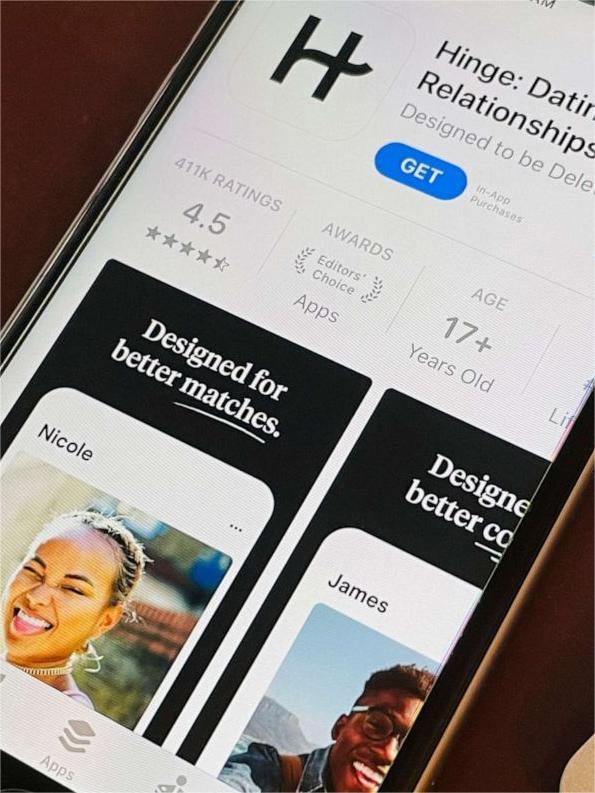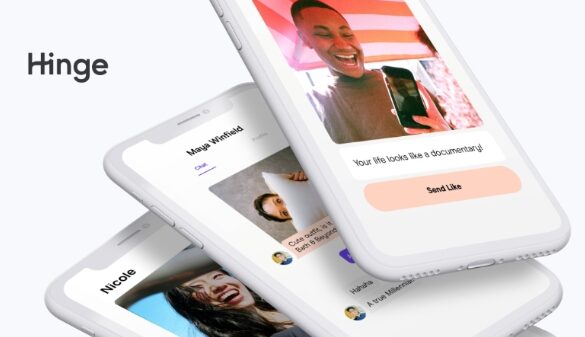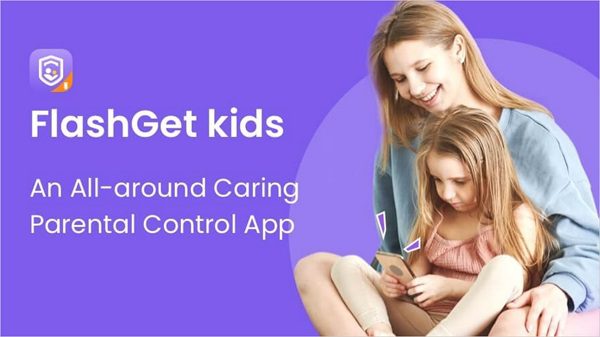The social media platform Hinge dating app has become the focus of the public after considerable growth in teenagers’ popularity with recent discussions on inappropriate content and limited age verification tools on the platform. Although the app was publicized as being the “relationship app that is meant to be deleted”, parents fear the dangers that arise from teenagers exploring the arena of online dating. This review of the Hinge dating app will evaluate the app’s functionality, drawbacks, and whether it does or does not meet teenagers’ needs and dangers.
Hinge dating app overview
Hinge, turns out to be a pioneer and a completely different and consequent alternative to those who suffer from swiping and pointless relationships.
Due to this rule, they strive to achieve meaningful relationships by making quality their utmost priority, not the number of people before getting started.
Unlike its visually-driven rivals, Hinge is a minimalist-focused app that has an emphasis on users’ personalities expressed through prompts, captions, and media features.
In addition to their own algorithm, the site also has a recommended list of suggested matches that users will be able to explore with time. The fact that this will lead to users carefully interacting with each profile improves engagement.
The foundation of the Hinge strategy rests on the certainty that people are not good at understanding the internal needs of other people and can benefit from putting more time and effort into that.
By aiming to discover that perfect spot where people not only swipe and don’t respond to messages but find their own forever-loves and, after that, delete the app, Hinge will assist with it.



Key features of Hinge
Here are the key features of the Hinge dating app:
- Prompts and personal descriptions: Different from Tinder, where users can see mostly the other person’s pictures, this app, through the questions and background information of the other person, shows one’s depth.
- Daily match suggestions: Hinge algorithm determines users by using filters and the app rating afterwards in order to show them a few potential matches per day.
- Liking and commenting: Unlike many swipe-oriented dating apps, Hinge is an app where you can only like people’s specific responses, pictures, or personal information that you come across.
- Dealbreakers and preferences: People can choose for themselves what non-negotiables there are, for example, refusing smoking, religion, and having children.
- Standouts: ‘Standouts’ symbols represent individuals whom the members have “targeted” because of their quick response to an issue and the high perceived value of their contributions.
By highlighting features like personality, intentionality, and compatibility, Hinge stands out in the dating app landscape and aims at people looking for more meaningful relationships and long-term commitment.
Pros & Cons
Here are some pros and cons of the Hinge dating app:
Pros:
- Focus on compatibility: On Hinge, you can note your dealbreakers and preferences, which increases the probability of matching with someone compatible.
- Personality-driven Approach: Hinge’s focus on prompts and personal descriptions rather than just on photos may encourage users to display their personalities more and, thus, attract more meaningful connections.
- Enhanced communication tools: Characteristics like in-app video and voice notes enrich the initial exchanges between the prospective partners without meeting face to face.
- Designed for long-term relationships: Hinge seeks to define itself as a platform for people looking for serious and meaningful relationships rather than fun one-night stands.
Cons:
- Limited daily matches: The tightly curated selection of matches, though aimed at giving the users an opportunity to pick carefully, can be experienced as limiting by some people who seek more choices.
- Subscription required for advanced features: To access features such as unlimited likes and advanced filters, you need to upgrade to a paid subscription.
- Dependence on self-reported information: Similarly to most dating apps, Hinge is based on people providing authentic information about themselves in their profiles.
- Potential for superficial judgments: While the app might imply that personality rather than looks is the most important factor, physical appearance still remains essential, as it is one of the major contributors to attracting possible dates.
For & Not for
Here’s an overview of who Hinge is for and who it may not be for:
For:
- People seeking serious, long-term relationships: Hinge differentiates itself as an app that people can use to forge profound and character-building connections and not just casual hookups.
- Those who value personality over superficial traits: With its top list of features, it becomes the best choice for people who are interested not only in physical attraction but also in something more.
- Selective daters: Hinge with curated matches and technology that sets deal breakers, which may be good for those who choose a more thought-out and filtered way to date.
- Urban singles: Since the algorithm in Hinge mostly relies on geographical proximity, it can be more efficient for city dwellers who have a bigger population.
May Not Be For:
- People seeking casual dating or hookups: The dating app depicts its branding and features as catering to those who are searching for a dedicated relationship, which is probably a misfit for those seeking a casual affair.
- Daters who prefer an abundance of options: Only two matches each day provided by Hinge would not satisfy the needs of people who like to see multiple possible partners.
- Those on a tight budget: Hinge premium subscription being a must choice for the unlimited likes and more filters is a turn off to the cheap users.
Hinge dating app review
The review of the Hinge dating app is as follows.
Users have generally given Hinge positive reviews, with an average score of 4.3 on the App Store and 3.4 on Google Play. Many users find appealing the app’s focus on personality and purposefulness, as compared to the shallow-swiping culture popular on some other apps.
Nevertheless, users have stated that they would have preferred to be able to filter more personally, as they find the number of daily suggested matches too limited.
In addition, a few users have expressed concerns about the app’s algorithm and matching accuracy, implying that their compatibility scores might not correspond with their likes and dislikes.
My take: A commendable beginning, yet scope for growth.
I appreciated the level of detail in Hinge’s profile. It became easier to talk to people based on a common interest or funny approach. The fact that I could not endlessly swipe right was also something positive in me, making me to be more thoughtful.
In contrast, the lack of Likes can be very limiting, particularly for free users. The other challenge is that some prompts may be too general or lead to mundane conversations.
How does Hinge work?
Here’s an overview of how the Hinge dating app works:
Profile setup
While signing up on Hinge, every user needs to provide their profile with photos and prompts that Hinge is supposed to use to help the readers get a look into the person’s nature, hobbies and interests. The topics of the next prompts span from funny to intriguing that enable users to share their more than usual bios.
Finding matches
In contrast with common swiping options, the hinge application uses a different way of choosing partners. The technical set-up of the app’s algorithm makes up a list of probable matches from other users every day whose location, preferences, and compatibility scores, which are reflected in the profiles, meet one’s search parameters.
Liking and commenting
When you view all the suggested matches it is more like a process of selection where you mark like to unique features attracting you as an individual rather than monotonous swiping. Furthermore, Hinge is an interactive stage on which the users can express their views regarding these profiles, so they can start the conversation with an authentic base.
Standouts and most compatible
The “Standouts” section of the app reveals users who have the most followers and frequently respond to prompts. Hinge features a special list, “Most Compatible,” with matches that are supposed to be highly compatible with the algorithm of the app and the taste of the user.
Dealbreakers and preferences
Users are free to set their personal deal breakers and preferences; this may include things such as whether or not the person smokes, their religious beliefs, or their plans for having children. This data is fed into the algorithm, which in turn provides more compatible match suggestions based on users’ non-negotiables.
Communication and meeting
When people determine a common ground, they may start chatting and sending messages via the application. Hinge also offers features like in-app videos and voice notes that aim to help you create more personal conversations with your potential match before the two of you meet physically.
Subscription options
Hinge is a free-to-use app with an upgraded subscription called “Preferred Membership” that gives users the chance to like endlessly and see who has already liked them.
Is Hinge a good dating app for teens?



As per the description of Hinge and its emphasis on building deep and lasting relationships, I do not endorse it as a dating platform for teenagers.
While Hinge’s emphasis on personality and compatibility could be seen as beneficial for young daters, several potential concerns and drawbacks make it less suitable for teenagers:
- Maturity level: This app aims to help senior citizens maintain long-term, faithful relations. On the contrary, teenagers can be immature or inadequately ready to establish the standard of Hinge’s type of connection.
- Safety and privacy concerns: The minors are exposed to lots of dangers of dating online. Although age verification rules are being implemented, users still may misstate their age or predators may take advantage of them.
- Emotional and psychological readiness: Building a romantic relationship, as well as finding a suitable partner, is psychologically and emotionally quite exhausting, even for mature women and men. Using such an app might pose potential dangers to teenagers who may not have the necessary level of maturity to handle them.
- Focus on physical attributes: The appearance of the members still matters to the users when they are looking for potential matches, even though Hinge may focus on personality. This might continue to promote unhealthy beauty standards and, thus, increase the insecurities that already exist in the teenage years.
- Developmental appropriateness: Young people dating and other romantic relationships are typically a normal step toward self-development during adolescence; however, the degree of depth and penetration that Hinge offers to people is not always in line with the majority of teens’ goals at this stage of their lives.
Solutions to prevent harmful effects of Hinge on teens
Although Hinge may not be the best app for dating for teenagers, we should not forget that some teenagers will somehow use or look for apps on the same platform.
Thus, a multi-aspect strategy, including parental control and education and monitoring tools, is necessary to prevent such apps from having a negative effect.
- Open and honest communication: Parents should have a frank talk with the young ones about the dangers and the problems of online dating and relationships.
- Age-appropriate education: Teenagers should be educated about consent, healthy relationships, internet safety, and the consequences of risky online activities, particularly to help them do the right thing.
- Setting clear boundaries and rules: To ensure their kids’ safety, parents should set aside what platforms their children use for dating and online communication.
- Parental control and monitoring tools: Parental control applications that integrate monitoring tools will let parents see what their teens have been doing online. These gadgets can restrict access to apps, filter the content, and record the trails of teenagers’ online presence.
Parental control apps that help ensure Hinge safety for teens
Different parental control applications are there that can ratchet down the risk coming from these online gateways and enable parents to keep the pulse on their children’s online activities. The names of the most prominent ones are, for instance, Qustodio and MMGuardian, with FlashGet Kids having the top spot.
FlashGet Kids is a parental control solution that tackles the challenge of protecting kids (including teens) from the wrong content and activities which they come across on the internet.



This feature enables parents to block different applications, including the dating app Hinge, so their kids don’t install them on their phones.
Here’s how FlashGet Kids can help ensure Hinge safety for teens:
- App blocking: A parent can block Hinge and other apps with a few taps on their device, making it impossible for their child to access or install these platforms.
- Content filtering: Parents can use advanced content filtering features in FlashGet Kids to block inappropriate websites, videos, and online content according to their individual parental settings and age restrictions.
- Real-time monitoring: The app allows users to monitor their child’s device’s activities, including web browsing history, a list of apps and their usage, and location tracking in real-time.
- Screen time management: Parents can put a time limit on applications usage and schedule the time to avoid extreme usage or using the phone at specified study periods or when sleeping.
FAQs
Is Hinge dating app free?
Hinge also has a free basic plan but only a few features are available. The best way to have unlimited likes, superior filters, and other advanced options is by upgrading to our Premium Membership subscription.
Is Bumble or Hinge better for teens?
Neither Bumble nor Hinge, it appears, are appropriate for teenagers, based on security considerations and the main focus on serious dating. Teens need to discover family-friendly social media platforms without parental supervision
What’s the average age on Hinge?
Despite Hinge not disclosing the demographic parameters, the majority of reviews and reports about the service seem to suggest that the most enthusiastic users in the age range between the mid-20s and late-30s, are looking for a commitment.

